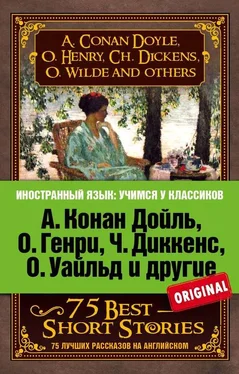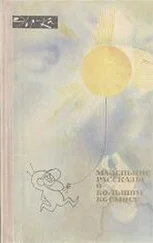‘It is quite evident that you have always lived in the country,’ answered the Rocket, ‘otherwise you would know who I am. However, I excuse your ignorance. It would be unfair to expect other people to be as remarkable as oneself. You will no doubt be surprised to hear that I can fly up into the sky, and come down in a shower of golden rain.’
‘I don’t think much of that,’ said the Duck, ‘as I cannot see what use it is to anyone. Now, if you could plough the fields like the ox, or draw a cart like the horse, or look after the sheep like the collie-dog, that would be something.’
‘My good creature,’ cried the Rocket in a very haughty tone of voice, ‘I see that you belong to the lower orders. A person of my position is never useful. We have certain accomplishments, and that is more than sufficient. I have no sympathy myself with industry of any kind, least of all with such industries as you seem to recommend. Indeed, I have always been of opinion that hard work is simply the refuge of people who have nothing whatever to do.’
‘Well, well,’ said the Duck, who was of a very peaceable disposition, and never quarrelled with any one, ‘everybody has different tastes. I hope, at any rate, that you are going to take up your residence here.’
‘Oh! dear no,’ cried the Rocket. ‘I am merely a visitor, a distinguished visitor. The fact is that I find this place rather tedious. There is neither society here, nor solitude. In fact, it is essentially suburban. I shall probably go back to Court, for I know that I am destined to make a sensation in the world.’
‘I had thoughts of entering public life once myself,’ remarked the Duck; ‘there are so many things that need reforming. Indeed, I took the chair at a meeting some time ago, and we passed resolutions condemning everything that we did not like. However, they did not seem to have much effect. Now I go in for domesticity, and look after my family.’
‘I am made for public life,’ said the Rocket, ‘and so are all my relations, even the humblest of them. Whenever we appear we excite great attention. I have not actually appeared myself, but when I do so it will be a magnificent sight. As for domesticity, it ages one rapidly, and distracts one’s mind from higher things.’
‘Ah! the higher things of life, how fine they are!’ said the Duck; ‘and that reminds me how hungry I feel;’ and she swam away down the stream, saying, ‘Quack, quack, quack.’
‘Come back! come back!’ screamed the Rocket, ‘I have a great deal to say to you;’ but the Duck paid no attention to him. ‘I am glad that she has gone,’ he said to himself, ‘she has a decidedly middle-class mind;’ and he sank a little deeper still into the mud, and began to think about the loneliness of genius, when suddenly two little boys in white smocks came running down the bank, with a kettle and some faggots.
‘This must be the deputation,’ said the Rocket, and he tried to look very dignified.
‘Hallo!’ cried one of the boys, ‘look at this old stick! I wonder how it came here;’ and he picked the Rocket out of the ditch.
‘OLD STICK!’ said the Rocket, ‘impossible! GOLD STICK, that is what he said. Gold Stick is very complimentary. In fact, he mistakes me for one of the Court dignitaries!’
‘Let us put it into the fire!’ said the other boy, ‘it will help to boil the kettle.’
So they piled the faggots together, and put the Rocket on top, and lit the fire.
‘This is magnificent,’ cried the Rocket, ‘they are going to let me off in broad day-light, so that everyone can see me.’
‘We will go to sleep now,’ they said, ‘and when we wake up the kettle will be boiled;’ and they lay down on the grass, and shut their eyes.
The Rocket was very damp, so he took a long time to burn. At last, however, the fire caught him.
‘Now I am going off!’ he cried, and he made himself very stiff and straight. ‘I know I shall go much higher than the stars, much higher than the moon, much higher than the sun. In fact, I shall go so high that—’
Fizz! Fizz! Fizz! and he went straight up into the air.
‘Delightful!’ he cried, ‘I shall go on like this for ever. What a success I am!’
But nobody saw him.
Then he began to feel a curious tingling sensation all over him.
‘Now I am going to explode,’ he cried. ‘I shall set the whole world on fire, and make such a noise that nobody will talk about anything else for a whole year.’ And he certainly did explode. Bang! Bang! Bang! went the gunpowder. There was no doubt about it.
But nobody heard him, not even the two little boys, for they were sound asleep.
Then all that was left of him was the stick, and this fell down on the back of a Goose who was taking a walk by the side of the ditch.
‘Good heavens!’ cried the Goose. ‘It is going to rain sticks;’ and she rushed into the water.
‘I knew I should create a great sensation,’ gasped the Rocket, and he went out.
The Model Millionaire (Oscar Wilde)
Unless one is wealthy there is no use in being a charming fellow. Romance is the privilege of the rich, not the profession of the unemployed. The poor should be practical and prosaic. It is better to have a permanent income than to be fascinating. These are the great truths of modern life which Hughie Erskine never realised. Poor Hughie! Intellectually, we must admit, he was not of much importance. He never said a brilliant or even an ill-natured thing in his life. But then he was wonderfully good-looking, with his crisp brown hair, his clear-cut profile, and his grey eyes. He was as popular with men as he was with women and he had every accomplishment except that of making money. His father had bequeathed him his cavalry sword and a History of the Peninsular War in fifteen volumes. Hughie hung the first over his looking-glass, put the second on a shelf between Ruff’s Guide and Bailey’s Magazine, and lived on two hundred a year that an old aunt allowed him. He had tried everything. He had gone on the Stock Exchange for six months; but what was a butterfly to do among bulls and bears? He had been a tea-merchant for a little longer, but had soon tired of pekoe and souchong [561]. Then he had tried selling dry sherry [562]. That did not answer; the sherry was a little too dry. Ultimately he became nothing, a delightful, ineffectual young man with a perfect profile and no profession.
To make matters worse, he was in love. The girl he loved was Laura Merton, the daughter of a retired Colonel who had lost his temper and his digestion in India, and had never found either of them again. Laura adored him, and he was ready to kiss her shoe-strings. They were the handsomest couple in London, and had not a penny-piece between them. The Colonel was very fond of Hughie, but would not hear of any engagement.
‘Come to me, my boy, when you have got ten thousand pounds of your own, and we will see about it,’ he used to say; and Hughie looked very glum in those days, and had to go to Laura for consolation.
One morning, as he was on his way to Holland Park, where the Mertons lived, he dropped in to see a great friend of his, Alan Trevor. Trevor was a painter. Indeed, few people escape that nowadays. But he was also an artist, and artists are rather rare. Personally he was a strange rough fellow, with a freckled face and a red ragged beard. However, when he took up the brush he was a real master, and his pictures were eagerly sought after. He had been very much attracted by Hughie at first, it must be acknowledged, entirely on account of his personal charm. ‘The only people a painter should know,’ he used to say, ‘are people who are bête [563]and beautiful, people who are an artistic pleasure to look at and an intellectual repose to talk to. Men who are dandies and women who are darlings rule the world, at least they should do so.’ However, after he got to know Hughie better, he liked him quite as much for his bright, buoyant spirits and his generous, reckless nature, and had given him the permanent entree to his studio.
Читать дальше
Конец ознакомительного отрывка
Купить книгу












